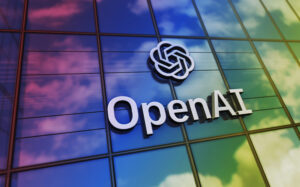
The integration of Rockset’s real-time analytics platform with OpenAI’s AI technologies lets businesses more easily use the power of real-time data and AI to drive decision-making.
In a strategic move to bolster its data management and analytics capabilities, OpenAI has announced its acquisition of Rockset, a leader in real-time analytics. This acquisition is causing a stir across the tech landscape, promising significant advancements while shaking up the market dynamics.
Enhanced Capabilities for Customers
Integrating Rockset’s real-time analytics platform with OpenAI’s advanced AI technologies offers a number of added capabilities that using one or the other does not. Some of the benefits organizations can expect to realize include:
Real-time Insights and Decision Making: Businesses can derive insights and make data-driven decisions in real time, leveraging Rockset’s rapid data processing and OpenAI’s sophisticated AI models.
Enhanced Data Processing and Analysis: Users can process complex datasets seamlessly and gain deeper analytical insights, enhancing data-driven strategies.
Scalability and Flexibility: Organizations can scale their data analytics and AI capabilities as needed, ensuring flexibility and robustness in handling growing data and evolving business needs.
Operational Efficiency: Organizations can streamline their operations, reduce manual workload, and improve efficiency by integrating automated real-time data processing and advanced AI analytics.
Enhanced Predictive Analytics: Businesses can anticipate trends, identify opportunities, and mitigate risks more effectively by utilizing real-time data and predictive AI models.
Used together, the integration of Rockset’s real-time analytics platform with OpenAI’s AI technologies lets businesses more easily use the power of real-time data and AI to drive decision-making.
See also: Where to Train Your AI Dragon
Market Implications and Competitive Advantage
It’s looking like it will also have significant market implications and expand OpenAI’s market reach, providing a competitive edge:
- Broadened Market Reach: The acquisition allows OpenAI to leverage Rockset’s real-time analytics capabilities across various industries, including finance, healthcare, e-commerce, and logistics. These sectors can benefit from real-time insights to improve operational efficiency, customer experience, and strategic decision-making. For example, real-time data processing can enhance patient monitoring in healthcare and optimize inventory management in e-commerce.
- Increased Competition: This move intensifies competition among major players in the AI and analytics space. Companies like Google, Microsoft, and Amazon will need to innovate rapidly to keep pace with the new capabilities that OpenAI is set to offer.
- Market Consolidation and Investment: The acquisition is part of a broader trend of consolidation in the tech industry, leading to fewer but more powerful entities dominating the market. This trend highlights the growing importance of AI and real-time analytics in business operations, driving further investment and development in these areas.
- Strengthening Competitive Advantage: The ability to process and analyze data in real time is a significant advantage in the competitive AI industry. Despite OpenAI’s partnership with Microsoft, it is independently investing in the foundations needed to deliver an enterprise-grade LLM stack. Rockset enables OpenAI to compete with full-stack generative AI platforms like Amazon Bedrock and Google Cloud Vertex AI. The unique combination of Rockset’s real-time data capabilities and OpenAI’s advanced AI technologies provides a competitive edge that is hard for other companies to match.
Challenges for Current Customers
How OpenAI and Rocketset will approach the company’s relationships with existing customers is still unclear. While the acquisition brings many potential benefits, it could pose immediate challenges for Rockset’s customer base, depending on how they answer that question. Christina Cewe, Head of Global Partnerships at Hydrolix, expressed concerns about the abrupt changes:
“OpenAI’s decision to shut down Rockset’s API, especially with only 90 days of notice, is going to put a lot of pressure on their customers. Just evaluating and choosing a replacement is hard enough. But then you factor in things like data migration—if that is even possible—changes that have to be made to applications using Rockset, changes to internal operations, and the fact it is the summer time for many, and I really sympathize with them. My advice, first and foremost, is to find partners with a reputation for great customer service, who have the resources to help out with migration, and who understand evaluations need to conclude quickly.”
Navigating the Transition
OpenAI’s acquisition of Rockset represents a significant step towards enhancing data analytics and AI capabilities. It also signals a shift in the market dynamics, with increased competition and consolidation shaping the future of the tech landscape. Customers can look forward to more powerful tools and seamless integrations while the market braces for a new wave of innovation and strategic maneuvers.
However, the transition may not be smooth for current Rockset users facing the challenge of migrating their data and operations in a limited timeframe. As the acquisition unfolds, the tech world will be watching closely to see how OpenAI addresses these challenges, manages Rocketset’s current customer base, and launches the new partnership.





























